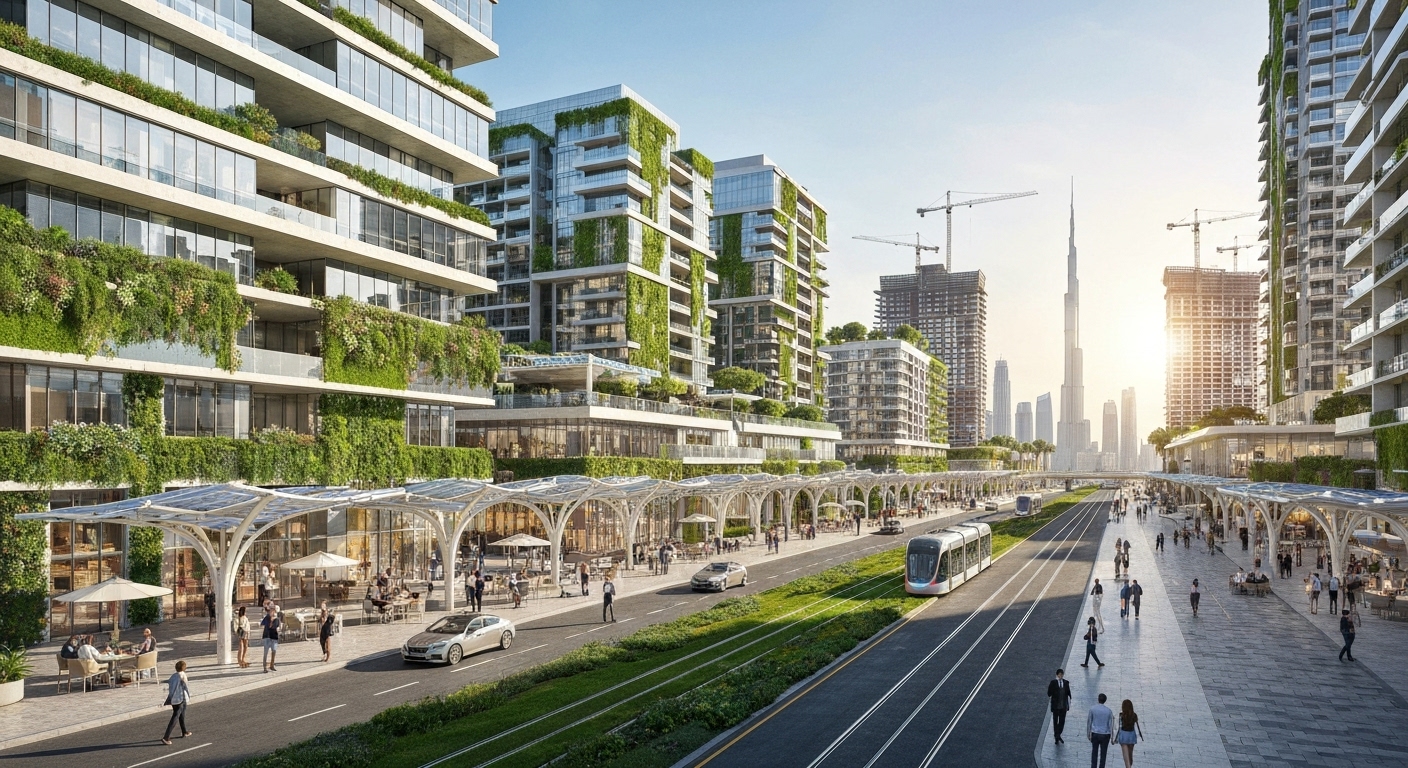As global inflation concerns continue to shape investment strategies, discerning investors are increasingly seeking assets that can preserve and grow wealth in uncertain economic times. Dubai’s property market has emerged as a compelling option for those looking to hedge against inflation in 2025, but is it truly the ultimate protection strategy?
Understanding Inflation and the Need for Hedges in 2025
Inflation erodes purchasing power over time, making it essential for investors to seek assets that can outpace rising prices. With central banks worldwide grappling with monetary policy decisions and geopolitical tensions affecting global markets, 2025 presents unique challenges for wealth preservation. Traditional hedges like gold and government bonds may not provide the returns needed to maintain real purchasing power, prompting investors to explore alternative options.
The current economic landscape demands assets that offer both capital appreciation potential and income generation capabilities. This dual benefit becomes crucial when inflation rates threaten to diminish the real value of static investments.
Why Dubai Property Has Traditionally Appealed to Investors
Dubai’s real estate market has demonstrated remarkable resilience over the past decade, attracting international capital through its strategic advantages. The emirate’s position as a global business hub, combined with its investor-friendly policies, has created a robust foundation for property investment.
Key factors driving investor confidence include Dubai’s political stability, world-class infrastructure, and growing population of high-net-worth individuals. The city’s status as a safe haven for international investors has been reinforced by its transparent legal framework and strong property rights protection.
The market’s ability to recover from previous downturns showcases its underlying strength. Dubai’s property sector has consistently bounced back from challenges, supported by government initiatives and strategic economic diversification efforts.
Key Economic Indicators and Expert Forecasts for Dubai in 2025
Economic projections for Dubai in 2025 paint an optimistic picture for property investors. The emirate’s GDP growth is expected to remain robust, driven by continued economic diversification and major infrastructure projects. Population growth projections indicate sustained demand for both residential and commercial properties.
Dubai’s hosting of Expo 2020 legacy effects continues to attract businesses and residents, while ongoing mega-projects promise to enhance the city’s appeal. The government’s vision for becoming a global financial center further strengthens the long-term outlook.
Expert analysts point to Dubai’s strategic investments in technology, renewable energy, and tourism as factors that will support property demand. These sectors are expected to drive job creation and attract international talent, directly benefiting the real estate market.
Dubai Real Estate’s ‘Inflation-Proof’ Mechanisms
Dubai property offers several mechanisms that can help investors combat inflation effectively. Rental yields in prime locations often exceed global averages, providing regular income that can adjust with market conditions. This income component helps offset inflationary pressures while maintaining cash flow.
Capital appreciation potential remains strong, particularly in emerging areas and luxury segments. Dubai’s limited land supply, combined with growing demand, creates upward pressure on property values over time.
The UAE’s tax-efficient environment adds another layer of protection. With no personal income tax, capital gains tax, or inheritance tax, investors can maximize their returns and preserve wealth more effectively than in many other jurisdictions.
Risks and Considerations: What Investors Need to Know
While Dubai property offers compelling inflation hedging potential, investors must consider several risk factors. Market volatility can affect short-term returns, and oversupply in certain segments may impact rental yields and capital appreciation.
Currency fluctuations present another consideration for international investors. The UAE dirham’s peg to the US dollar provides some stability, but global currency movements can still affect investment returns when converted to other currencies.
Regulatory changes, though historically investor-friendly, could impact future returns. Additionally, the cyclical nature of real estate markets means timing and location selection remain crucial for success.
Making an Informed Decision for 2025
Dubai property presents a compelling case as an inflation hedge for 2025, offering unique advantages through its combination of rental income potential, capital appreciation prospects, and tax efficiency. The emirate’s continued economic growth and strategic positioning support long-term investment viability.
However, successful inflation hedging through Dubai property requires careful market analysis, proper due diligence, and alignment with individual investment goals. Investors should consider their risk tolerance, investment timeline, and portfolio diversification needs when evaluating Dubai real estate as an inflation protection strategy.
For those seeking a dynamic market with strong fundamentals and growth potential, Dubai property offers an attractive opportunity to preserve and grow wealth in an inflationary environment.




